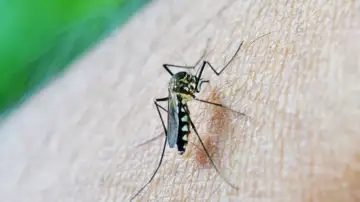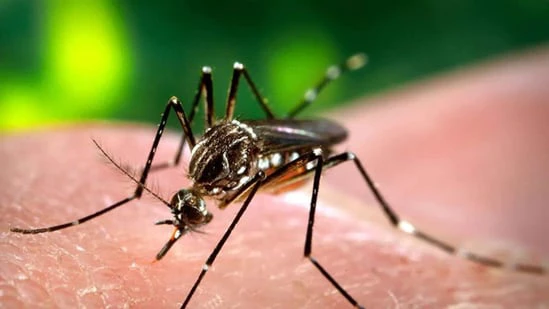Every monsoon, the risk of mosquito-borne diseases like dengue and malaria surges. Increased humidity, stagnant water, and seasonal weather changes create ideal breeding grounds for mosquitoes, fueling the spread of these infections.
In an interview with HT Lifestyle, Dr Tushar Tayal, consultant, internal medicine, CK Birla Hospital, Gurugram said, “Dengue, a mosquito-borne viral infection, affects people of all ages, but in children, the disease can behave in far more unpredictable and dangerous ways. One key reason is that a child’s immune system may respond more aggressively to the virus, triggering an exaggerated inflammatory reaction. This can cause rapid plasma leakage from blood vessels, leading to shock, severe bleeding, or organ dysfunction, sometimes within just a few hours of symptom onset.” Dengue cases on the rise: Know the top prevention and recovery tips to stay safe
Why is dengue deadlier in children?
Subtle early warning signs: What makes dengue in children particularly challenging is that early warning signs may be subtle and easily mistaken for other illnesses. Unlike adults, who often present with intense muscle and joint pain, children may instead show vague symptoms such as persistent abdominal pain, repeated vomiting, unusual sleepiness, refusal to eat, or sudden irritability. Sometimes, the only visible clue might be small red spots (petechiae) on the skin caused by minor bleeding under the surface.
 Immediate evaluation is necessary: These atypical presentations mean that parents and caregivers must maintain a high level of suspicion during dengue season, especially in areas where cases are known to be rising. A child with a high fever for two to three days, even without the classic dengue symptoms, should be evaluated by a doctor. Delays in seeking care can be dangerous, as the transition from mild to severe dengue can happen very quickly.
Immediate evaluation is necessary: These atypical presentations mean that parents and caregivers must maintain a high level of suspicion during dengue season, especially in areas where cases are known to be rising. A child with a high fever for two to three days, even without the classic dengue symptoms, should be evaluated by a doctor. Delays in seeking care can be dangerous, as the transition from mild to severe dengue can happen very quickly.
Medical care: Currently, there is no specific antiviral treatment for dengue. Medical care focuses on supportive management such as controlling fever, preventing dehydration, and closely monitoring for warning signs of severity. In children, timely hospitalisation can make a critical difference in survival outcomes.
Prevention tips to know:
“Protecting children from mosquito bites is essential. Use child-safe mosquito repellents, dress them in full-sleeved, light-colored clothing, and ensure they sleep under properly tucked-in bed nets. Eliminating mosquito breeding sites around the home, particularly stagnant water in containers, coolers, and plant trays, is equally vital,” Dr Tushar Tayal added.
